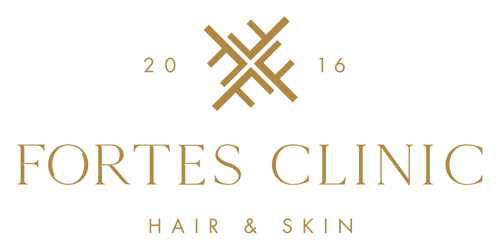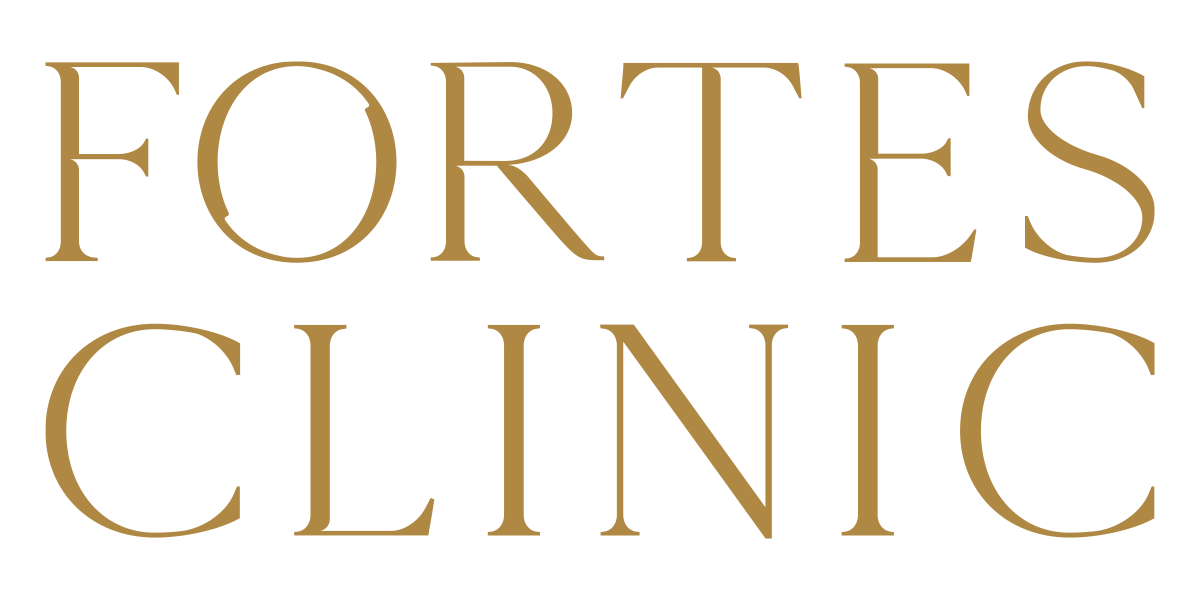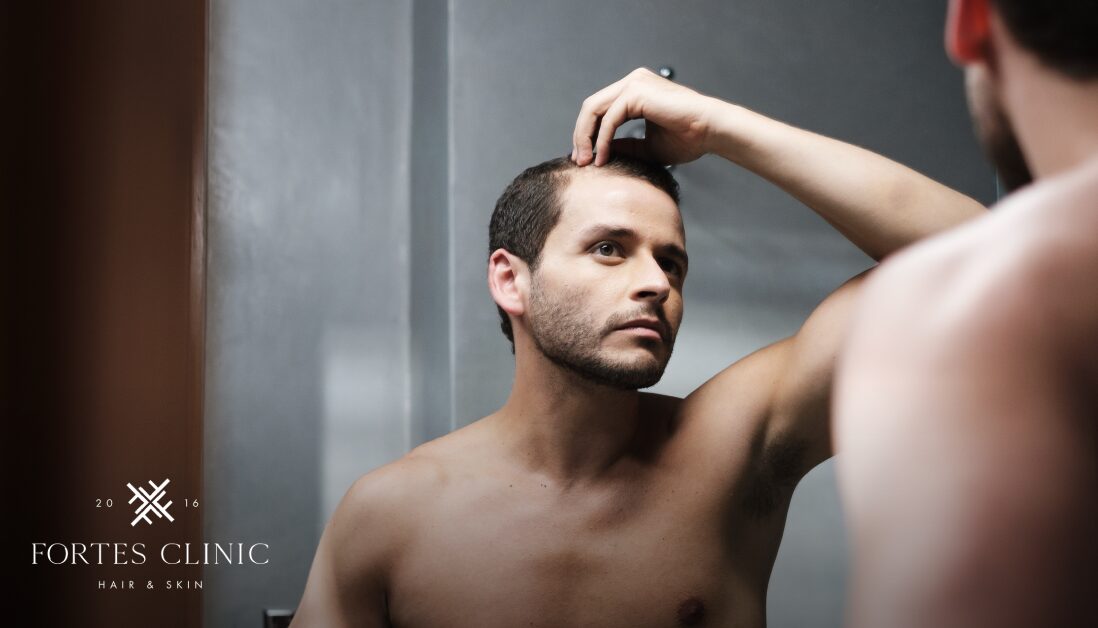Introduction
Hair transplants and advanced therapies are proven ways to restore lost hair, but everyday nutrition still plays a vital role in maintaining strong, healthy follicles. Many people underestimate how closely diet and hair health are linked. By choosing the right foods, you can give your scalp the building blocks it needs for growth, shine, and resilience. Nutrition for hair growth is not a cure for hereditary conditions such as male or female pattern baldness, but it can complement medical treatments and help you achieve stronger results.
Why Nutrition for Hair Growth Matters
Keratin makes up each strand of hair, and it depends on nutrients to form correctly. Without a steady supply of vitamins, minerals, and proteins, hair weakens and becomes more prone to breakage. Even healthy follicles may slow down if the body is undernourished.
Good nutrition does more than improve appearance. It supports circulation, carrying oxygen and nutrients directly to the roots. Improved blood flow stimulates follicle activity and protects against thinning. Patients preparing for a FUE Hair Transplant often find that optimising their diet creates a better environment for regrowth.
In addition, diet provides long-term support for your scalp. The choices you make daily determine whether follicles stay energised or slip into a dormant state. Therefore, making nutrition for hair growth part of your lifestyle can strengthen both natural and transplanted hair.
Essential Nutrients in Nutrition for Hair Growth
Protein – The Foundation of Hair Strength
Protein forms the structure of every strand. A diet short of protein slows growth and weakens the shaft. Eggs, lean poultry, fish, beans, and lentils all supply amino acids that your body converts into keratin. Patients who include more protein often notice improved strength and less breakage.
Furthermore, protein helps maintain muscle and tissue repair, which benefits the scalp as well as the rest of the body. For vegetarians and vegans, plant-based sources such as quinoa, chickpeas, and tofu provide a complete protein profile that supports hair growth without relying on animal products.
Iron – Delivering Oxygen to Follicles
Iron fuels the transport of oxygen through the blood to your follicles. Low iron levels frequently cause diffuse thinning, especially in women. Spinach, lentils, fortified cereals, and lean red meat all help restore balance. Correcting iron deficiency re-energises follicles and can boost the effects of PRP Hair Therapy.
For example, patients recovering from surgery who maintain steady iron intake often report less fatigue and faster healing. Iron absorption improves when paired with vitamin C-rich foods, such as oranges or bell peppers, so combining nutrients matters just as much as including them.
Vitamins A, C, and E – Supporting Growth and Shine
Vitamins act as powerful support for your scalp. Vitamin A encourages sebum production, which keeps the scalp hydrated. Vitamin C helps form collagen, strengthening the hair shaft. Vitamin E shields follicles against oxidative stress caused by daily exposure to pollution and UV rays. Carrots, citrus fruits, peppers, and nuts provide reliable sources of these vitamins.
In addition, these vitamins often work best together. For instance, Vitamin C assists with iron absorption, while Vitamin E pairs with healthy fats for maximum impact. As a result, varied meals that combine fruits, vegetables, and nuts give your hair multiple layers of protection.
Omega-3 Fatty Acids – Keeping the Scalp Healthy
Omega-3 fatty acids regulate inflammation and improve hydration. They reduce scalp dryness and create conditions where follicles can thrive. Salmon, chia seeds, flaxseeds, and walnuts supply these essential fats. Patients recovering from a women’s hair transplant often benefit from including omega-3s in their diet.
Moreover, omega-3s support cardiovascular health, which indirectly improves blood circulation to the scalp. Better circulation means nutrients reach follicles more effectively, encouraging stronger growth. In contrast, diets lacking in healthy fats often leave hair brittle and the scalp irritated.
Biotin and Zinc – Strengthening Follicles
Biotin supports keratin production, while zinc helps repair tissue and balance scalp oils. Deficiencies in either can cause shedding and slow regrowth. Whole grains, sunflower seeds, nuts, shellfish, and dairy are excellent natural sources. Zinc also assists recovery after surgery by supporting wound healing and healthy tissue repair.
Importantly, balance matters. Too much zinc can interfere with copper absorption, while excessive supplementation may create new issues. Therefore, it is best to obtain these nutrients from food first, with supplements only as directed by a medical professional.
Hydration and a Balanced Diet for Hair Growth
Water is a vital part of nutrition for hair growth. Without it, circulation to the scalp slows down, and hair can look dull. Drinking enough fluids every day gives follicles the hydration they need to stay active.
Equally, balance in eating patterns prevents unnecessary stress on hair. Crash diets or rapid weight loss often trigger a condition known as telogen effluvium, where the body diverts resources away from hair production. Consistent, nutrient-rich eating protects against this type of shedding and provides stability for the scalp.
As a result, patients who nourish their bodies properly before undergoing surgery often find that recovery feels easier and regrowth appears healthier.
Can Nutrition for Hair Growth Alone Stop Hair Loss?
While nutrition strengthens hair, it cannot reverse genetic conditions such as male pattern baldness or hormonal thinning. These types of loss are influenced by inherited factors rather than diet.
For lasting results, many patients combine nutrition with medical care. Treatments such as FUT Hair Transplant and PRP therapy target the causes of thinning, while nutrition enhances overall scalp health. Our blog on Hair Loss and Lifestyle explores how daily routines, including diet, influence outcomes.
Combining Nutrition with Professional Treatments
The most effective approach blends professional expertise with healthy living. Patients who eat well before and after a transplant often recover faster and maintain their results more effectively. Nutrition supports the scalp, while medical treatments restore density where hair has been lost.
At Fortes Clinic, we guide patients to think about the bigger picture. Success comes from more than surgery alone. By combining advanced treatments with nutrition for hair growth, hydration, and stress management, you can achieve stronger, natural-looking results that last.
Conclusion
Nutrition for hair growth provides the foundation for stronger, healthier hair. Protein, iron, vitamins, omega-3s, biotin, and zinc all play vital roles in supporting follicles. Hydration and balance help prevent unnecessary shedding, while nutrition works hand in hand with medical treatments.
Although diet alone cannot cure hereditary loss, it prepares the scalp for regrowth and improves the long-term outcome of clinical treatments. At Fortes Clinic, we combine medical expertise with lifestyle support to give patients the best possible results. If you are concerned about thinning or want to improve your overall hair health, our team is here to help you take the next step.



